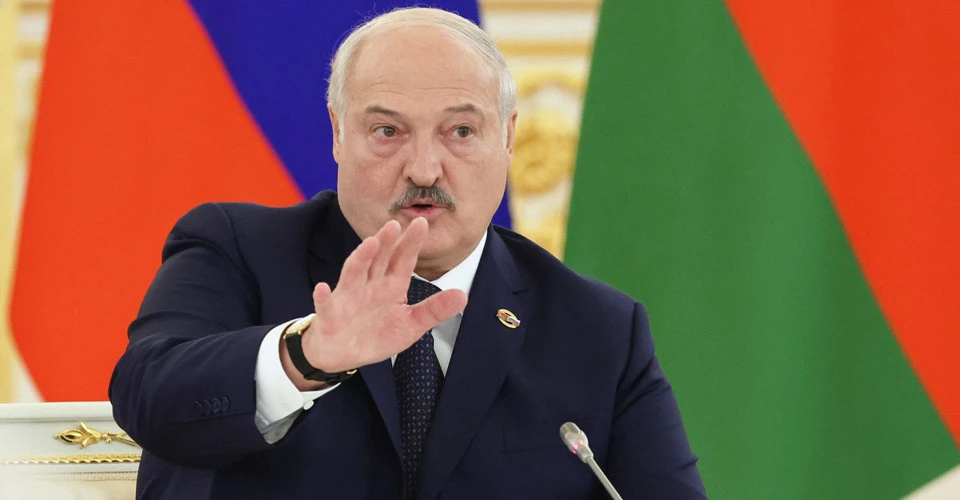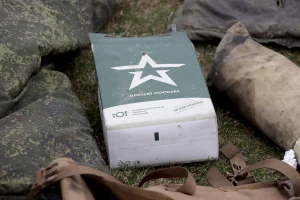
Lukashenko's army is incapacitated, Wagner PMC should fix itt - military expert Stupak
Military expert Ivan Stupak believes that Lukashenko persuaded Prigozhin to transfer Wagner PMC to Belarus to train and educate the Belarusian army
He expressed this opinion on the Espreso TV channel.
"Lukashenko has a completely impotent, sterile army. They can only clink medals and go to the CSTO. The Belarusian army has no real combat experience. And comparing his army to the Ukrainian and Russian ones, Lukashenko understands that sooner or later it will work against him. Therefore, it is likely that he has acquired a private army that will train his military," Stupak explained.
The expert added that Lukashenko is extremely concerned that the events in Russia will be repeated.
"Lukashenko believes that with the help of Wagner PMC he will be able to make his army more professional, able to fight with drones, aircraft and fight in urban areas. I would also like to add that on the very day that Wagner's men were moving towards Moscow, a number of statements were made by the Belarusian opposition that Lukashenko would face the same fate. That's why he could have been so scared that he offered to take the Wagner soldiers, who became his private army for protection," he added.
Prigozhin's rebellion in Russia
For several months, the conflict between Wagner PMC financier Yevgeny Prigozhin and the Russian Ministry of Defence continued, but the situation escalated sharply on the evening of 23 June.
Then, according to Prigozhin, Russian troops allegedly launched a missile attack on the Wagner PMC base. The leader of the Wagner group announced a "march of justice" and that 25,000 mercenaries were marching on Moscow after the Russian leadership failed to comply with the demand to extradite Defence Minister Sergei Shoigu and Chief of the General Staff Valery Gerasimov.
On Saturday, 24 June, in addition to the central part of Rostov-on-Don, where they had been encamped around the headquarters of the Southern Military District since the evening of 23 June, Wagner's men also took control of Voronezh. Their columns, diverted from the border with Ukraine, were moving towards Moscow. Shoygu's military aviation and artillery tried to stop them. The last time Wagner's PMC units were spotted was in the Lipetsk region of Russia. And in the Russian capital itself, firing points were being built at the entrance, trenches were being dug, and all security forces were being mobilised.
However, on the evening of 24 June, the press service of the self-proclaimed President of Belarus, Alexander Lukashenko, released a statement saying that the head of the Wagner PMC was ready to stop the movement of his mercenaries' convoys, which were already approaching Moscow, and to reach an agreement with the Kremlin. Prigozhin allegedly agreed on this during a conversation with Lukashenko.
Instead, the PMC financier said that before reaching 200 km to Moscow, the Wagner soldiers stopped moving and returned to their field camps: "We have travelled for a day - before reaching 200 kilometres to Moscow. During this time, we have not shed a single drop of blood. Now the moment has come when blood may be shed. Therefore, realising the full responsibility for the fact that Russian blood will be shed - on one side - we are turning our columns around and heading back to the field camps according to the plan."
Subsequently, Prigozhin and all his men left the headquarters of Russia's Southern Military District. Russian dictator Vladimir Putin promised that Prigozhin would be able to go to Belarus, and Russia would close the criminal case against him.
According to CNN, US intelligence knew about PMC leader Wagner's plans to go against the leadership of the Russian regular army, but did not think that the escalation would happen so quickly.
On 26 June, Yevgeny Prigozhin said that the main goal of the mutiny was "to prevent the destruction of the Wagner PMC, not to overthrow the government" and called it a "march of justice." He also claimed that the offensive on Moscow had stopped because the mercenaries "did not want to shed much blood."
- News














































